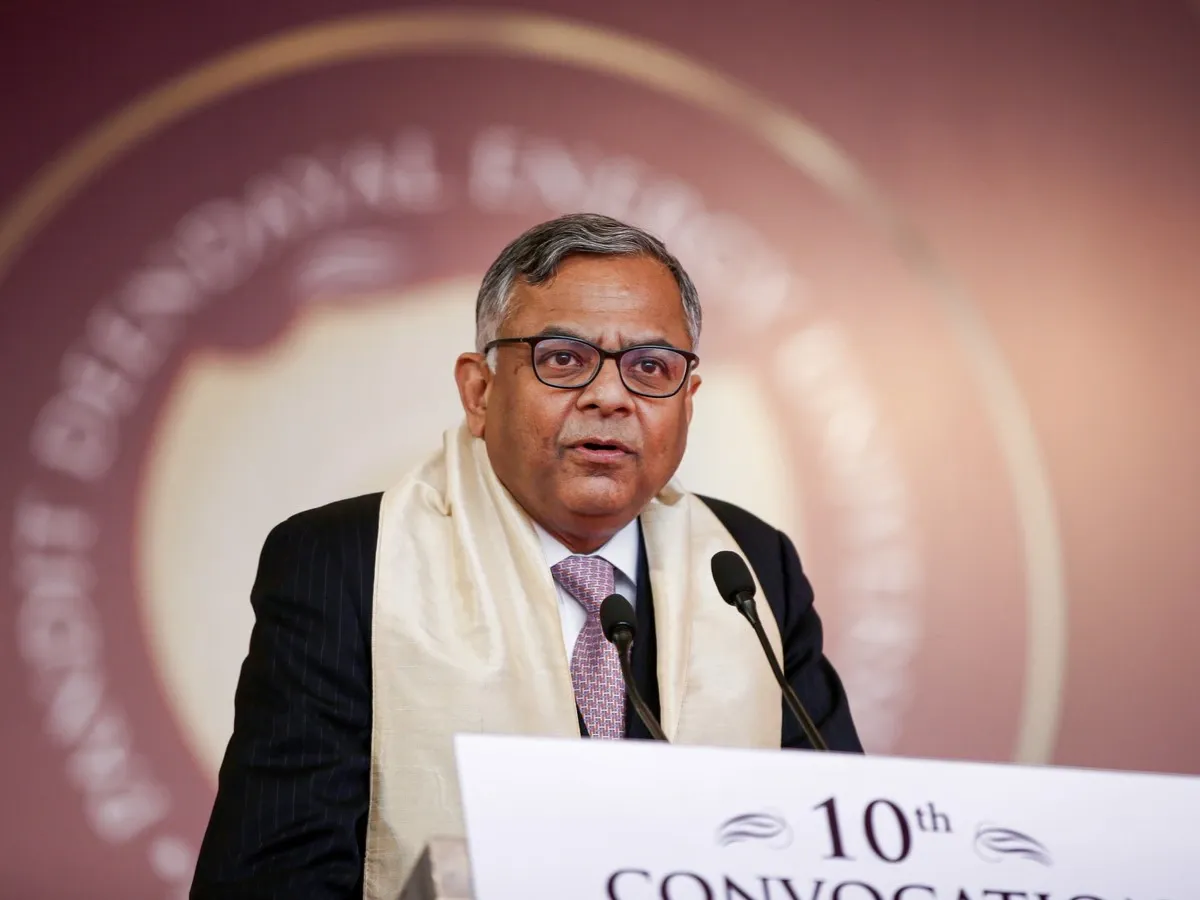Business News
N Chandrasekaran gets 3rd executive term: Why did Tata Trusts break its own retirement rule?
.png)
3 min read | Updated on October 13, 2025, 11:31 IST
SUMMARY
The move comes amid internal divisions within the Tata Trusts, which hold a 66% stake in Tata Sons.
Stock list

Chandrasekaran would normally have had to step down from executive duties under group norms.
The Tata Trusts has approved a third executive term for N Chandrasekaran, chairman of Tata Sons, in a rare departure from the conglomerate’s long-standing retirement policy, The Economic Times reported on Monday, citing people aware of the matter.
Chandrasekaran would normally have had to step down from executive duties under group norms, which mandate retirement for executives at 65.
“For the sake of continuity in functioning, it was felt that executive leadership was necessary to see through critical projects like semiconductors, batteries for electric vehicles and Air India,” ET quoted one of the persons cited above as saying.
The Tata Trusts’ resolution has been sent to Tata Sons, which will formally decide on approving a third term beginning 2027, according to the report.
The move comes amid reported infighting within the Tata Trusts over board appointments and governance matters.
The Trusts, which hold a 66% stake in Tata Sons, are said to be divided, with one faction aligned with chairman Noel Tata and another led by trustee Mehli Mistry.
Mehli has close ties to the Shapoorji Pallonji family, the single largest minority shareholder in Tata Sons with an 18.37% stake.
The brewing differences surfaced during a September 11 meeting of the Trusts’ six voting trustees, convened to consider the reappointment of former defence secretary Vijay Singh as a nominee director on the Tata Sons board. Singh, who is 77, did not attend the meeting as his reappointment was on the agenda.
While Noel Tata and trustee Venu Srinivasan supported Singh’s reappointment, four other trustees opposed the move. The dissenting trustees—Mehli Mistry, Pramit Jhaveri, Jehangir HC Jehangir and Darius Khambata—later sought to nominate Mehli Mistry to the Tata Sons board, a proposal that was resisted by Noel Tata and Srinivasan, who reportedly called for a transparent selection process aligned with the group’s values.
Vijay Singh voluntarily stepped down from the Tata Sons board.
The developments also coincide with regulatory pressures on Tata Sons, which was classified by the Reserve Bank of India (RBI) as an “upper-layer” non-banking financial company (NBFC).
The company’s deadline to go public expired on September 30. Tata Sons has since applied to the RBI to voluntarily surrender its registration as a core investment company (CIC) and continue as an unregistered CIC. The request is currently under examination.
Meanwhile, Shapoorji Pallonji Group chairman Shapoorji Pallonji Mistry reiterated his call for a public listing of Tata Sons, citing the need for transparency.
In a statement, Mistry called for the RBI's compliance timeline of September 30, 2025, for Tata Sons to be listed "under the "Upper Layer" classification "be viewed with the seriousness and sanctity that regulatory commitments deserve".
"We firmly believe that listing this premier institution will not only uphold the spirit of transparency envisioned by its founding father, Shri Jamsetji Tata, but also strengthen trust among all stakeholders -- employees, investors, and the people of India," he noted.
He further said, "Our stance is guided by a simple yet profound belief - transparency is the truest form of respect for both legacy and the future."
By signing up you agree to Upstox’s Terms & Conditions
About The Author
Next Story

